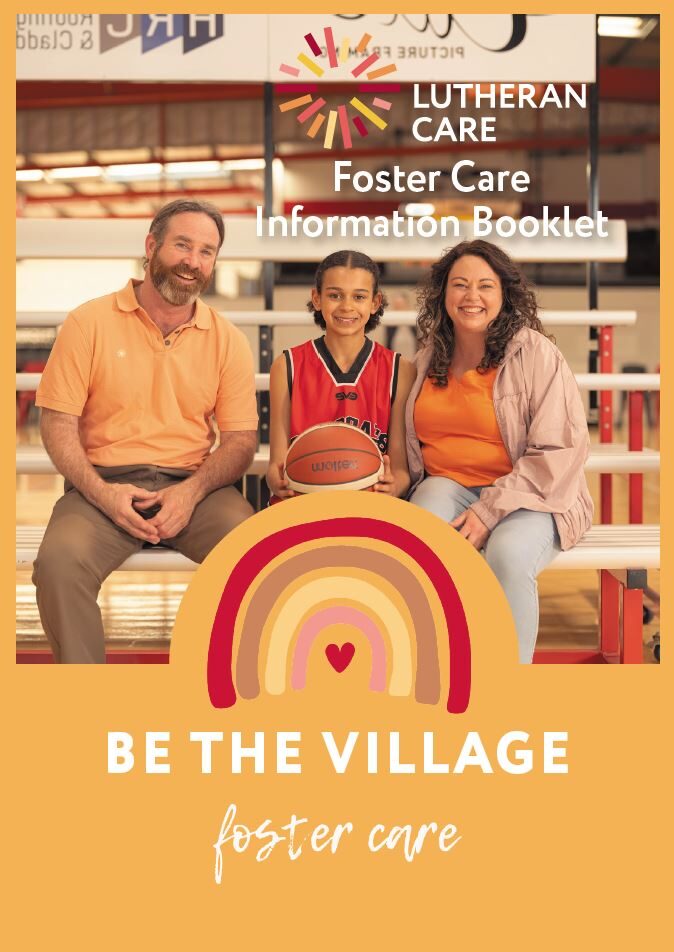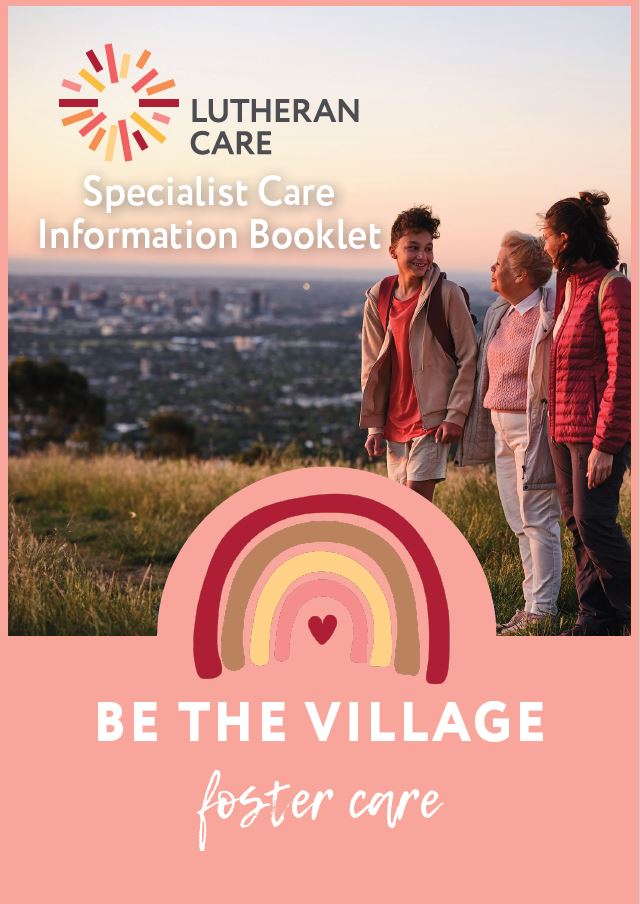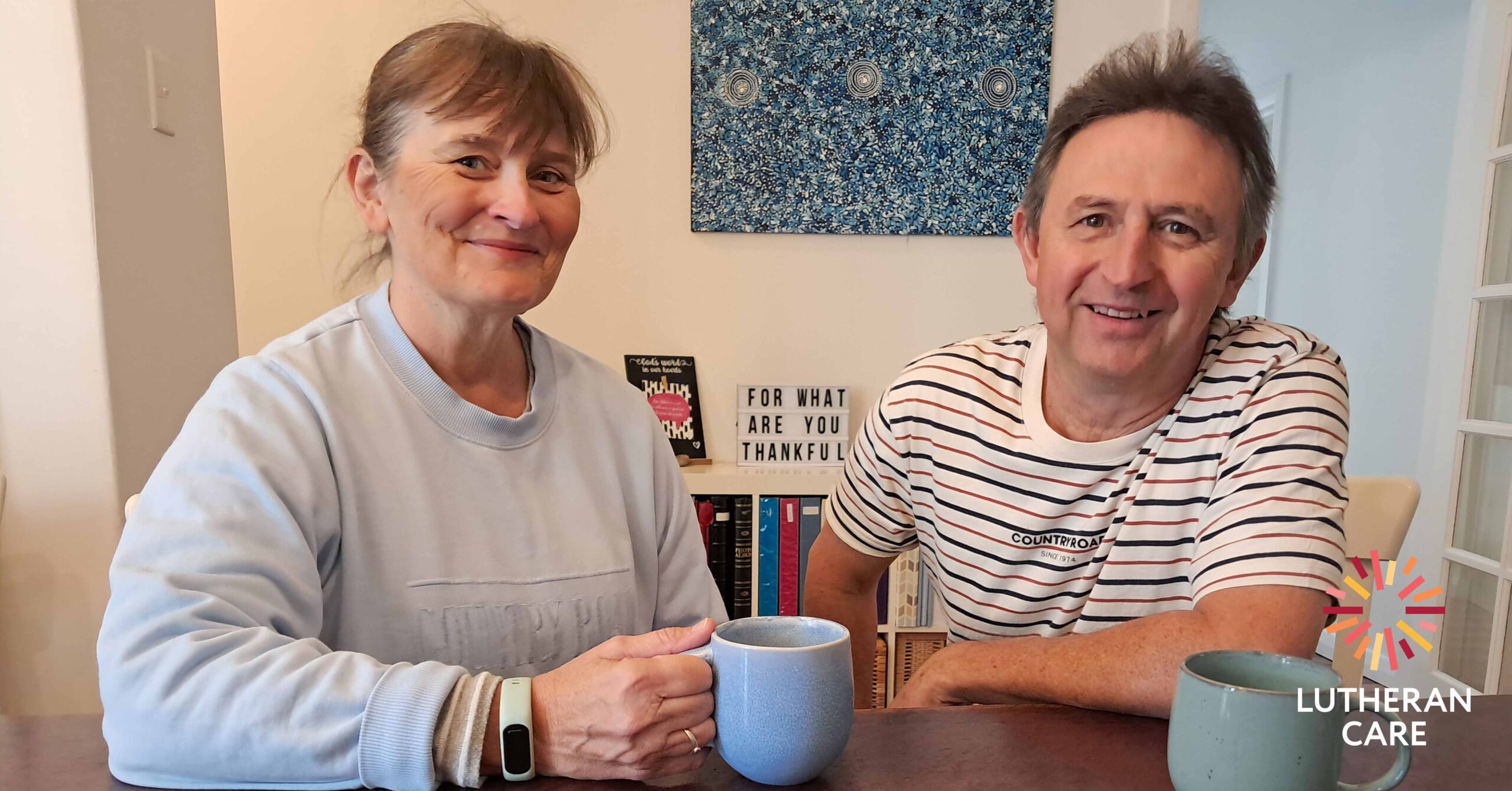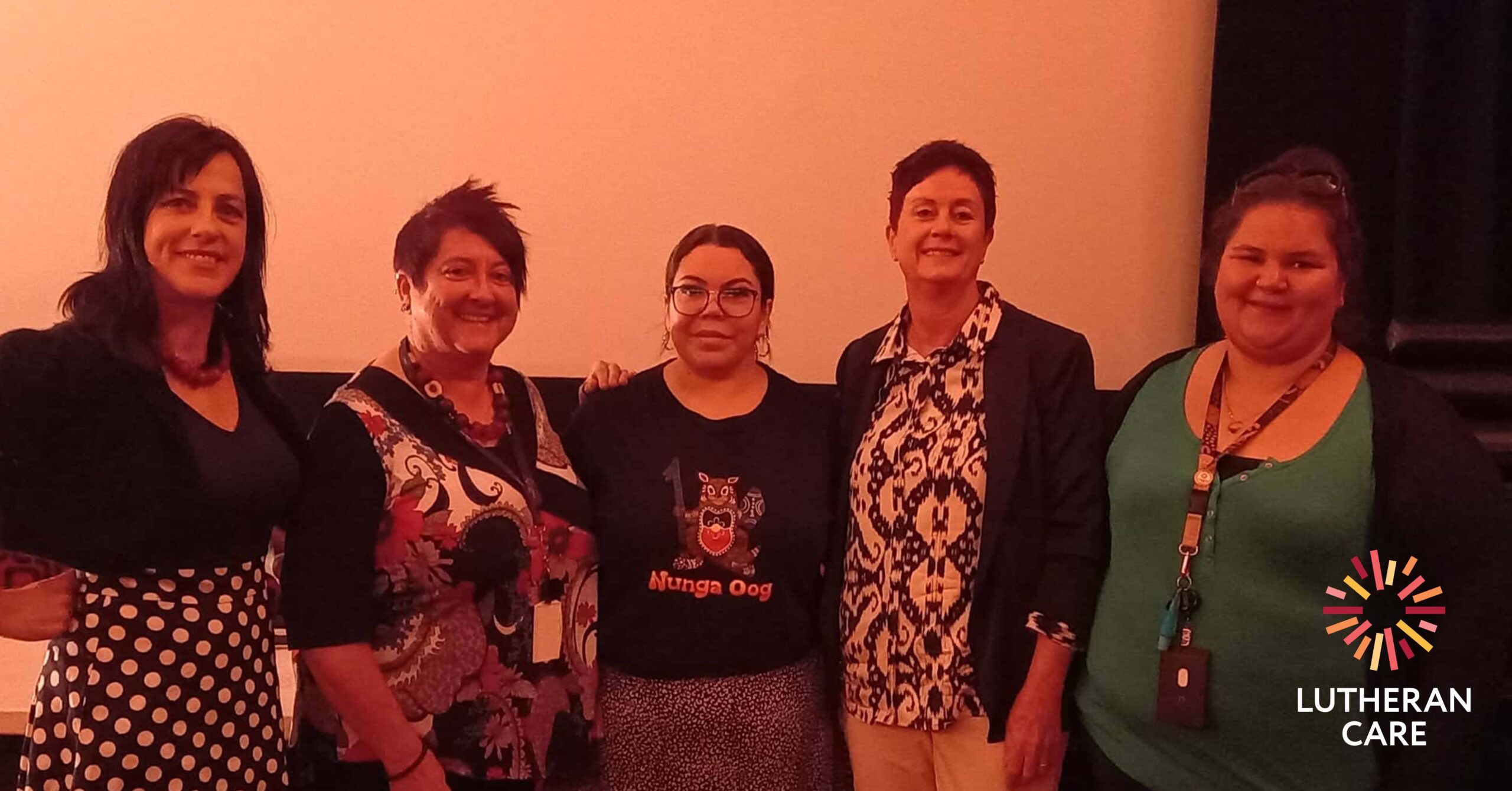
An adventure is calling...
Be the Village.
- 08 8337 8787
- fostercare@lutherancare.org.au
Lutheran Care
About Foster Care
Lutheran Care highly values the critical role of foster carers and the contributions that their friends and families make to the nurture of children and young people. We recognize that children belong and thrive in families and foster carers provide stable, supportive and nurturing homes to help children feel safe and secure while separated from their birth parents and siblings.
Lutheran Care welcomes foster care enquiries from all walks of life. We offer various types of care across both our Generalist Foster Care and Specialist Foster Care services. There is a great need for foster carers in both services, and a high demand for Respite Care for both long term Generalist and Specialist foster care families.
We are eager to hear from anyone thinking about fostering for the first time who may want a friendly chat with a member of our team to learn more about fostering; or anyone who has been thinking about fostering for some time (maybe years!) and eager to take the next step in their journey.
Foster Care is a journey, and our team is here to walk alongside you every step of the way.
Lutheran Care is renowned for our highly skilled staff team and the exceptional carer support we provide all our families in both Generalist and Specialist Foster Care. If you are thinking about fostering and would like to learn more, or have been thinking about fostering for a while and ready to take the next step, we would be delighted to hear from you.
As seen on Channel 7, 7Plus, Foxtel and Kayo
Be the Village Campaign
Respite Care: An adventure is calling. Be the Village.
You never know where the road may take you.
Calling team players to join the Village.
We’re with you every step of the way.
We all need connection not perfection.
Foster Carers don’t need to be perfect! Be the Village.
Stories from the Village.
The best adventures are the ones we share with others.
Meet Genevieve: Lutheran Care’s Foster Care Multicultural Worker
A lifetime of Foster Caring for Leonie
Laughter workshop connects SA’s Foster and Kinship Carers
Lutheran Care celebrates Foster Carers this Foster & Kinship Carer Week
Celena’s enormous love leads a resilient family unit
‘Light bulb’ moments power Krystle’s 20-year Foster Care career
Free books for families for Indigenous Literacy Day
Biological children of foster carers connect with each other through new event
Foster dads go bowling and strike a bond
Lutheran Care hosts events during National Reconciliation Week
Celebrating the Nilsens during National Families Week
Lutheran Care host premier screening of Into the Stars, a creative media project by Aboriginal children in care
Foster Care Information Booklet
Download our Information Booklet

Specialist Care Information Booklet
Download our Information Booklet

Lutheran Care
About Foster Care
Lutheran Care highly values the critical role of Foster Carers and the contributions that their friends and families make to the nurture of children and young people. We recognise that children belong and thrive in families and Foster Carers provide stable, supportive and nurturing homes to help children feel safe and secure while separated from their birth parents and siblings. There are different types of Foster Care including Long Term, Short Term and Respite across both Generalist and Specialist programs.
When Foster Carers invite children or young people in need to be a part of their family, whether that’s for a short time or a long time, it has the potential to be life-changing; for both the carers and the children. Fostering is both challenging and rewarding. Carers provide emotional support and care for a child’s day-to-day needs and support the child in their educational and recreational activities.
To become a Foster Carer, you will undergo an assessment process where your maturity, health and lifestyle is considered within the context of the type of care you would like to provide. Some of the characteristics and personal qualities of successful Foster Carers include flexibility, teamwork, communication, acceptance, playfulness and a commitment to lifelong learning. Carers are everyday members of the community who have a strong commitment to helping others, especially children. Unfortunately, our community needs more everyday people who are able to offer caring homes to children and young people who cannot live with their birth families. Foster Carers help children feel safe and secure while separated from their birth parents. Successful Foster Carers in both Generalist and Specialist Foster Care share many characteristics, however there is a unique eligibility criteria and skillset we are looking for in Specialist Foster Carers to meet the needs of children and young people in Specialist Care.
Children are at the centre of what we do, and we ‘the village for children and young people’ work together as a Care Team to meet the needs and serve the best interests of each individual child in care. Foster Carers, Lutheran Care (LC) Support Workers and Social Workers who work on behalf of the Department for Child Protection (DCP), actively participate in the Care Team to ensure that any decision which is made on behalf of the child is in the best interests of the child. Lutheran Care Foster Carers work with the child’s allocated DCP Case Worker and their Lutheran Care Support Worker as part of the Care Team to achieve the set goal or plan for the child.
Yes! Lutheran Care actively supports many Foster Carers who are single or are the sole resident of the home. Single Foster Carers can make great foster parents regardless of their sexual orientation. Couples can also foster. Couples can be married or in de facto relationships.
Absolutely! We proudly journey alongside and support many same-sex foster families who are each providing exceptional care to the children and young people in their care.
Yes, you can foster. The Foster Carer assessment is not dependent on your assets. However, you do need to demonstrate that you can provide safe and adequate accommodation where a child can live, play and sleep and that you are financially capable of supporting an additional child in your home. As part of the assessment process, pet hygiene and safety will be considered to determine that your home is suitable for caring for children and young people in care.
Every Foster Carer at Lutheran Care is allocated a dedicated Foster Care Case Worker (also known as a Foster Care Support Worker) who supports them in their fostering journey. Lutheran Care Support Workers journey with our Foster Carers to provide practical assistance, professional advocacy or a listening ear. Support workers can also advocate on behalf of the Foster Carer for training, resources or access to support services. We provide a 24/7 telephone line dedicated to our Foster Carers, so there is always someone from Lutheran Care at the other end of the phone to provide support, advice or assistance whenever it is needed.
Yes, there is a Foster Carer allowance paid to registered Foster Carers which varies depending on the needs of the children and young people in your care and the type of fostering you provide. In the general sense, this is considered financial assistance to reimburse and help cover the costs of the children in your care and is not considered an income.
Lutheran Care highly values the critical role of Foster Carers and the contributions that their friends and families make to the nurture of children and young people. We recognise that children belong and thrive in families and Foster Carers provide stable, supportive and nurturing homes to help children feel safe and secure while separated from their birth parents and siblings. There are different types of Foster Care including Long Term, Short Term and Respite across both Generalist and Specialist programs.
When Foster Carers invite children or young people in need to be a part of their family, whether that’s for a short time or a long time, it has the potential to be life-changing; for both the carers and the children. Fostering is both challenging and rewarding. Carers provide emotional support and care for a child’s day-to-day needs and support the child in their educational and recreational activities.
To become a Foster Carer, you will undergo an assessment process where your maturity, health and lifestyle is considered within the context of the type of care you would like to provide. Some of the characteristics and personal qualities of successful Foster Carers include flexibility, teamwork, communication, acceptance, playfulness and a commitment to lifelong learning. Carers are everyday members of the community who have a strong commitment to helping others, especially children. Unfortunately, our community needs more everyday people who are able to offer caring homes to children and young people who cannot live with their birth families. Foster Carers help children feel safe and secure while separated from their birth parents. Successful Foster Carers in both Generalist and Specialist Foster Care share many characteristics, however there is a unique eligibility criteria and skillset we are looking for in Specialist Foster Carers to meet the needs of children and young people in Specialist Care.
Children are at the centre of what we do, and we ‘the village for children and young people’ work together as a Care Team to meet the needs and serve the best interests of each individual child in care. Foster Carers, Lutheran Care (LC) Support Workers and Social Workers who work on behalf of the Department for Child Protection (DCP), actively participate in the Care Team to ensure that any decision which is made on behalf of the child is in the best interests of the child. Lutheran Care Foster Carers work with the child’s allocated DCP Case Worker and their Lutheran Care Support Worker as part of the Care Team to achieve the set goal or plan for the child.
Yes! Lutheran Care actively supports many Foster Carers who are single or are the sole resident of the home. Single Foster Carers can make great foster parents regardless of their sexual orientation. Couples can also foster. Couples can be married or in de facto relationships.
Absolutely! We proudly journey alongside and support many same-sex foster families who are each providing exceptional care to the children and young people in their care.
Yes, you can foster. The Foster Carer assessment is not dependent on your assets. However, you do need to demonstrate that you can provide safe and adequate accommodation where a child can live, play and sleep and that you are financially capable of supporting an additional child in your home. As part of the assessment process, pet hygiene and safety will be considered to determine that your home is suitable for caring for children and young people in care.
Every Foster Carer at Lutheran Care is allocated a dedicated Foster Care Case Worker (also known as a Foster Care Support Worker) who supports them in their fostering journey. Lutheran Care Support Workers journey with our Foster Carers to provide practical assistance, professional advocacy or a listening ear. Support workers can also advocate on behalf of the Foster Carer for training, resources or access to support services. We provide a 24/7 telephone line dedicated to our Foster Carers, so there is always someone from Lutheran Care at the other end of the phone to provide support, advice or assistance whenever it is needed.
Yes, there is a Foster Carer allowance paid to registered Foster Carers which varies depending on the needs of the children and young people in your care and the type of fostering you provide. In the general sense, this is considered financial assistance to reimburse and help cover the costs of the children in your care and is not considered an income.

Join the Village
Foster Care is a journey.
The journey doesn’t begin or end when you welcome a new child into your life and home – but it is a profoundly new chapter in your life. Lutheran Care walk alongside you and support you as you navigate the challenges and enjoy the rewards of sharing your family and dedicating yourselves to meeting the needs and best interests of the children and young people in your care.
Contact our friendly and professional team to learn more or take the next step in your fostering journey.
- 08 8337 8787
- fostercare@lutherancare.org.au
Contact our friendly and professional team
If you would like to speak to someone about becoming a foster carer, please feel free to contact our friendly team on 8337 8787. We would be delighted to have a personal chat with you and explore the possibilities of becoming a foster carer with you in a personal conversation.













